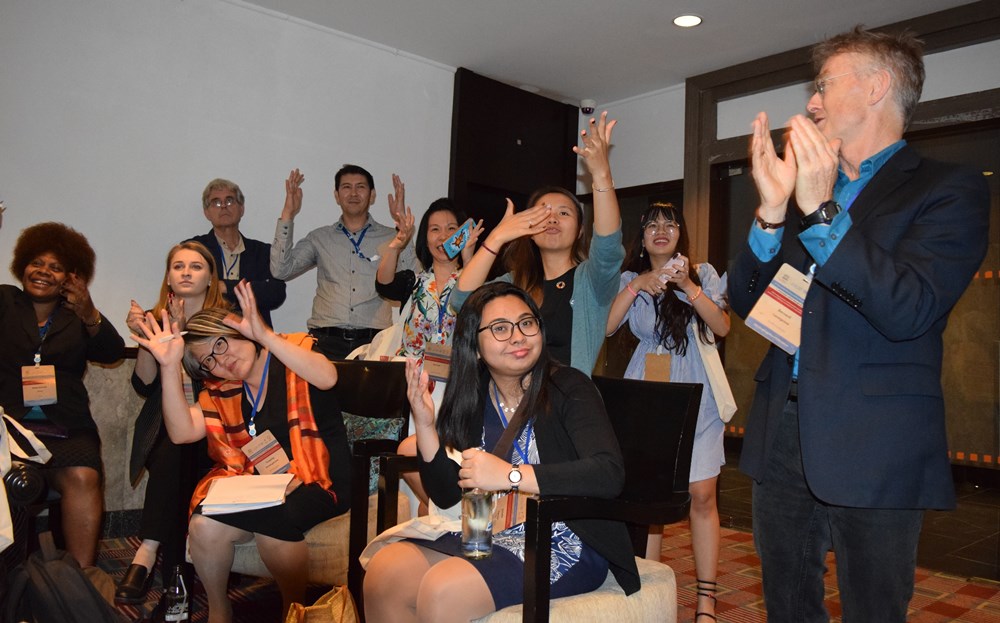
Capacity Building for National and Trans-National Education Advocacy
ASPBAE’s capacity building work for education advocacy is oriented towards developing and deepening capacities of civil society organisations, especially of national education coalitions, in advocacy on the right to education and lifelong learning to hold governments, donors, multilateral and intergovernmental bodies, and other decision-makers to account in meeting the globally agreed commitments to education.
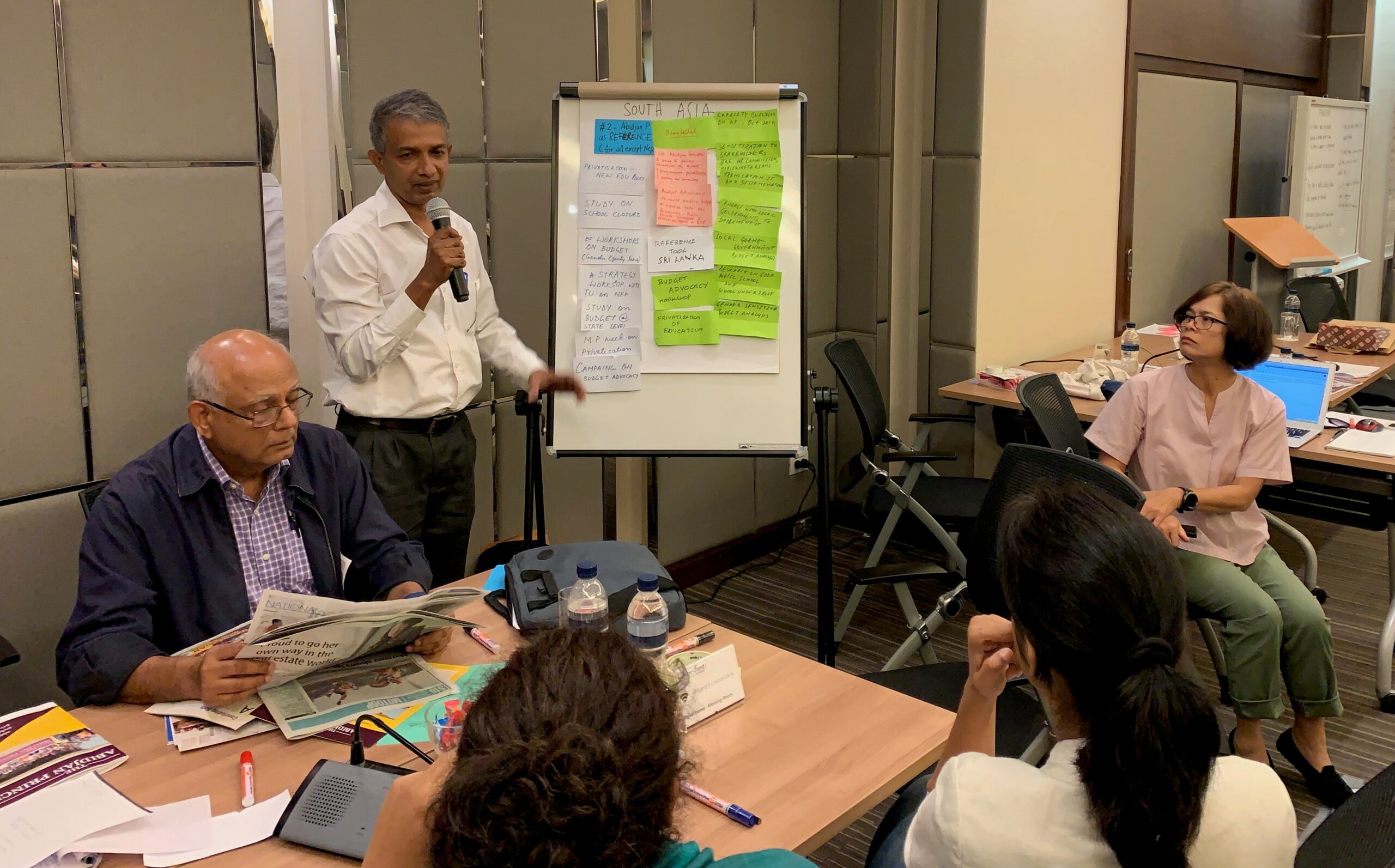
ASPBAE also supports their institutional strengthening efforts to ensure they remain credible and effective actors for education reform in their countries and in the wider Asia Pacific region.
ASPBAE currently supports national education coalitions in 19 countries in the Asia Pacific, offering demand-led, context-based capacity building support on education advocacy, institutional strengthening and network/constituency building efforts.
The Education Out Loud (EOL) mechanism, managed by Oxfam Ibis and funded by the Global Partnership for Education (GPE), supports ASPBAE’s work in 16 of these countries, namely – Afghanistan, Bangladesh, Cambodia, Indonesia, Kyrgyzstan, Mongolia, Nepal, Pakistan, Papua New Guinea, Philippines, Samoa, Solomon Islands, Tajikistan, Timor-Leste, Vanuatu, and Vietnam.
Additionally, ASPBAE provides capacity support to education coalitions in India, Sri Lanka, and education advocacy CSOs in Myanmar. ASPBAE also maintains links with coalitions in Japan and South Korea, especially on transnational, coordinated advocacy actions and provides support to the national education coalition in Australia with the common objective of advocating for SDG4.
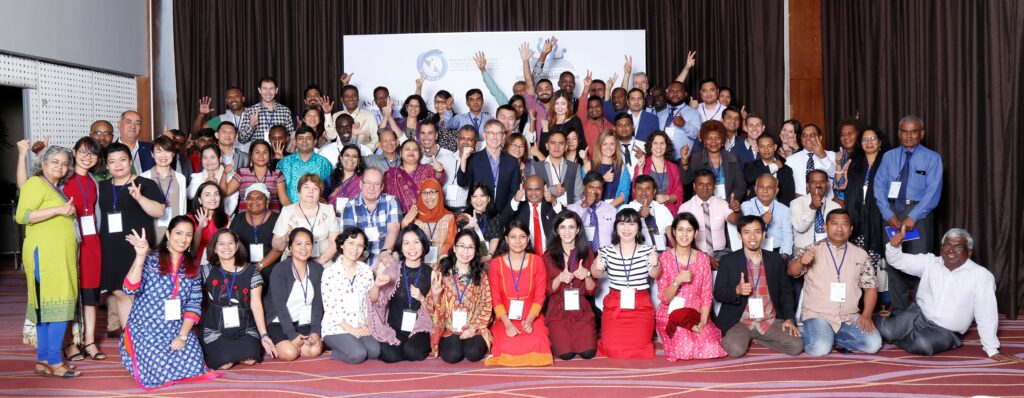
Advocacy support is directed at enhancing education coalition capacities to influence policy processes to support the full SDG4 agenda with strong attention to equity, gender, and inclusion in the SDG-SDG4 policy spaces and the Local Education Group (LEG) processes.
Aside from attention to ASPBAE’s core and ongoing advocacy concerns, tackling critical issues in education magnified by the pandemic are currently incorporated into ASPBAE’s advocacy, thematic, and institutional capacity support to national education coalitions. This includes addressing issues around the digital divide in education, the influence of for-profit education technology companies in education delivery, countering disinformation, strategising for increased influence in virtual and face-to-face government policy forums, and strategies for promoting democracy and civil society spaces.
Supporting national education coalitions in promoting the inclusion and engagement of marginalised sectors (youth, women and girls, people with disabilities, ethnic and indigenous groups) in country-level policy processes is also a priority. ASPBAE assists and guides education coalitions in the preparations of CSO SDG4 Spotlight Reports, in budget monitoring and analysis, in supporting gender-transformative education sector planning and monitoring, and the development of country partnership compacts. ASPBAE offers guidance and tools of analysis to education coalitions in these processes, contextualised to their specific country conditions.
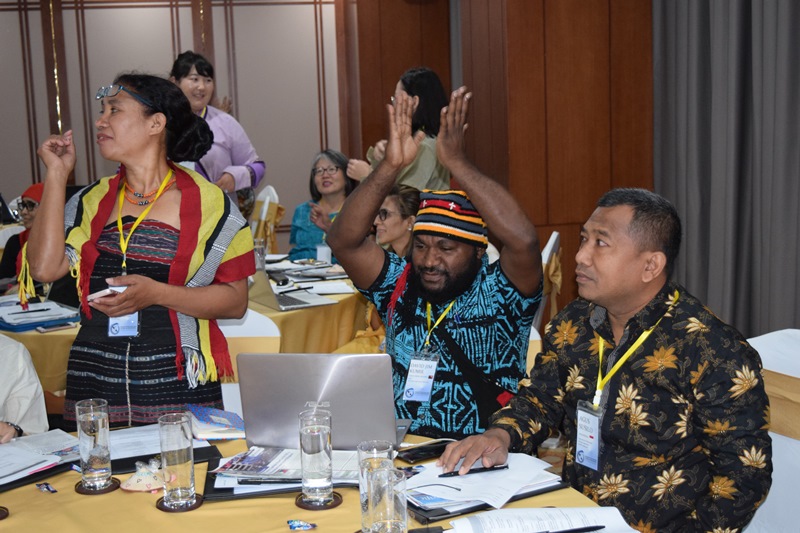
ASPBAE’s demand-driven and context-based capacity support on institutional strengthening spans the areas of governance, constituency expansion and consolidation, monitoring and evaluation, communications, organisational development, resource mobilisation, and sustainability.
While much of the capacity support to education coalitions is undertaken in-country through trainings, mentorship and other teaching-learning processes in online, blended and face-to-face modalities, ASPBAE also organises and facilitates transnational trainings, workshops, consultations, and other capacity building efforts. These foster cross-country exchanges and offer spaces as well for joint strategising on shared actions regionally and globally. ASPBAE organises at least one regional workshop per year among its national education coalition partners for capacity building and collective planning. Where needed, sub-regional workshops and trainings are organised as well, including cross-country exchanges between coalitions.
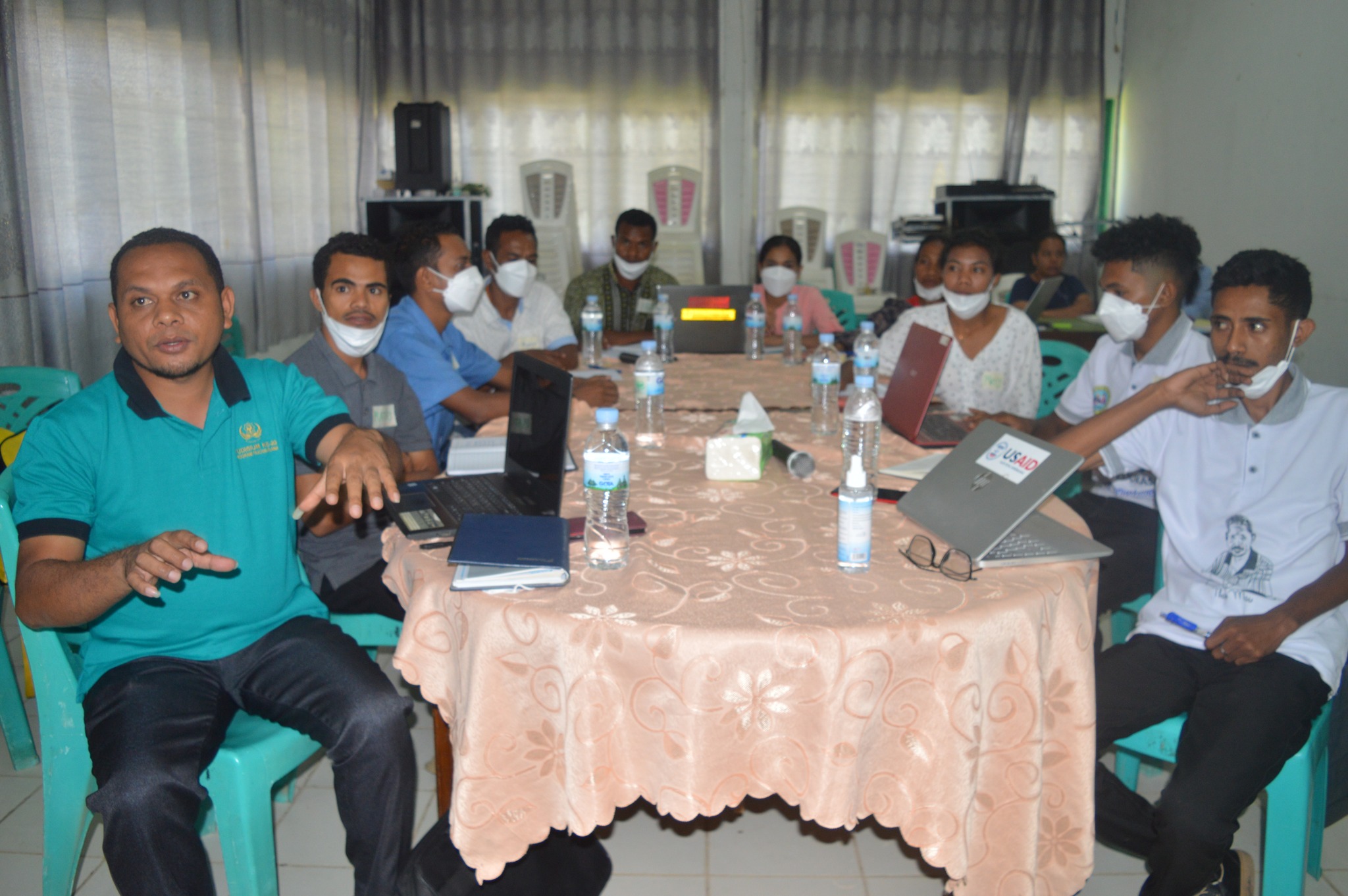
ASPBAE promotes the work and analysis of coalitions through its various communication platforms (website, social media platforms), publications, and resources – offering a rich resource on education advocacy for its partner coalitions, members, and the wider public.
It has been an ongoing strategy of ASPBAE to secure spaces for education coalitions to directly participate in regional and global level SDGs-SDG4 policy processes. Participation in these processes is optimised by ASPBAE as opportunities not only for advocacy, but for capacity building. ASPBAE customarily convenes joint strategising sessions with CSO participants in regional/transnational policy events to plan CSO engagement and lobbying in these events, offering effective spaces for ‘learning-by-doing’ education advocacy.